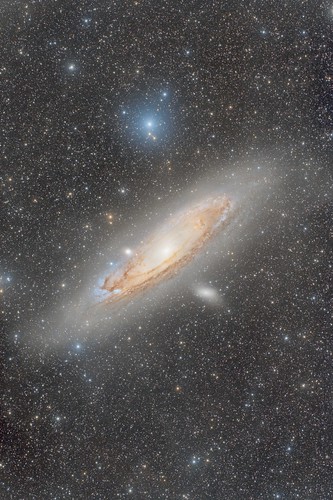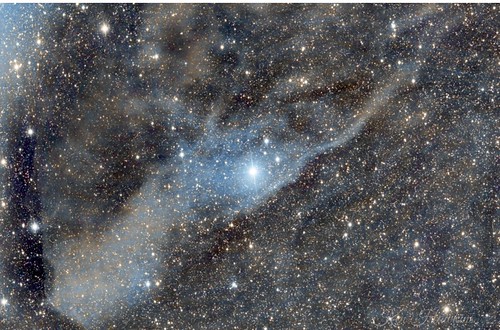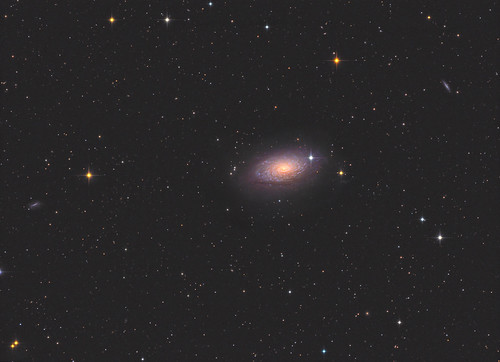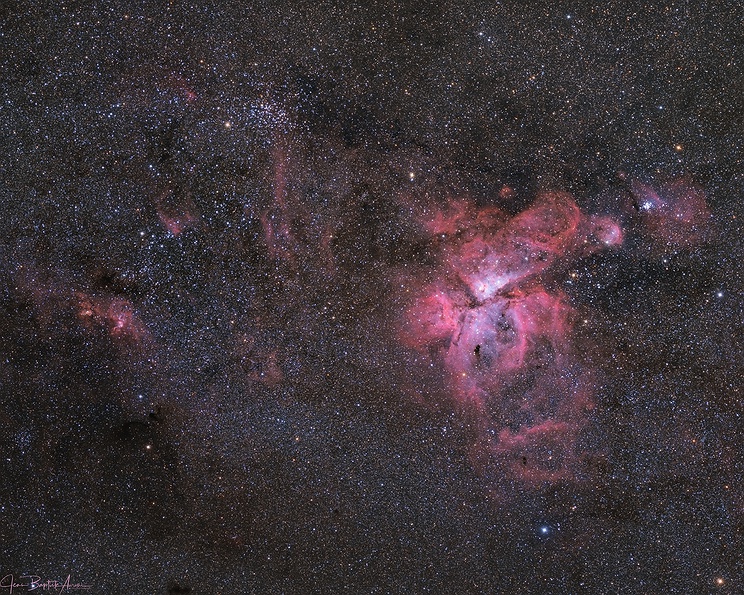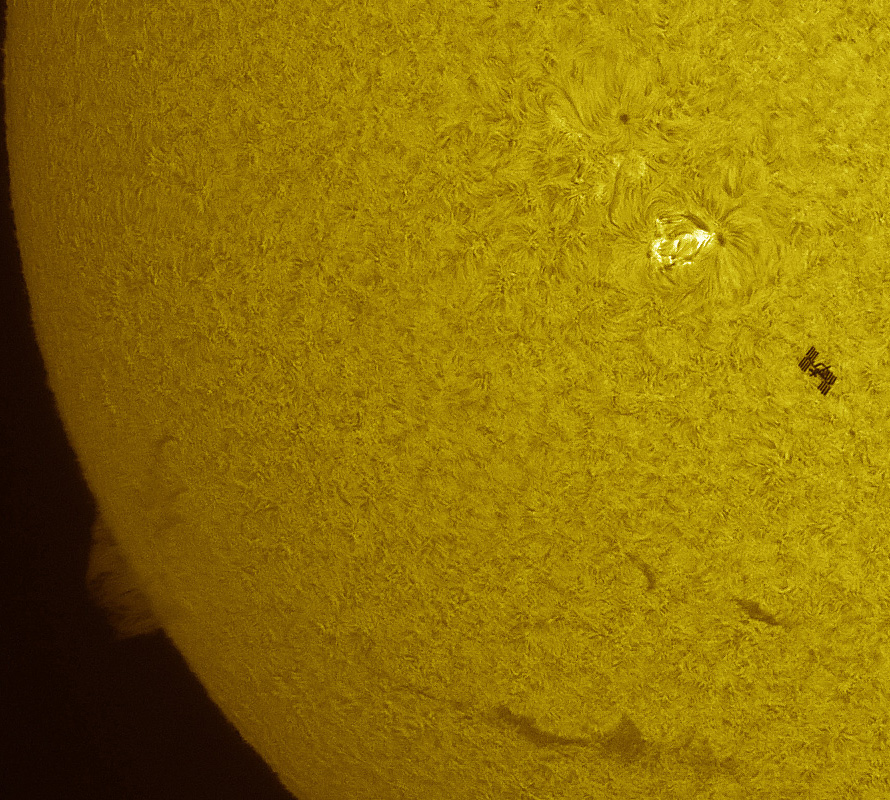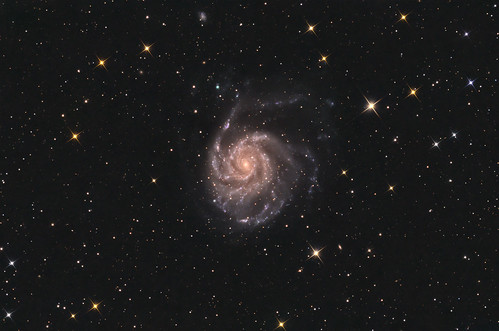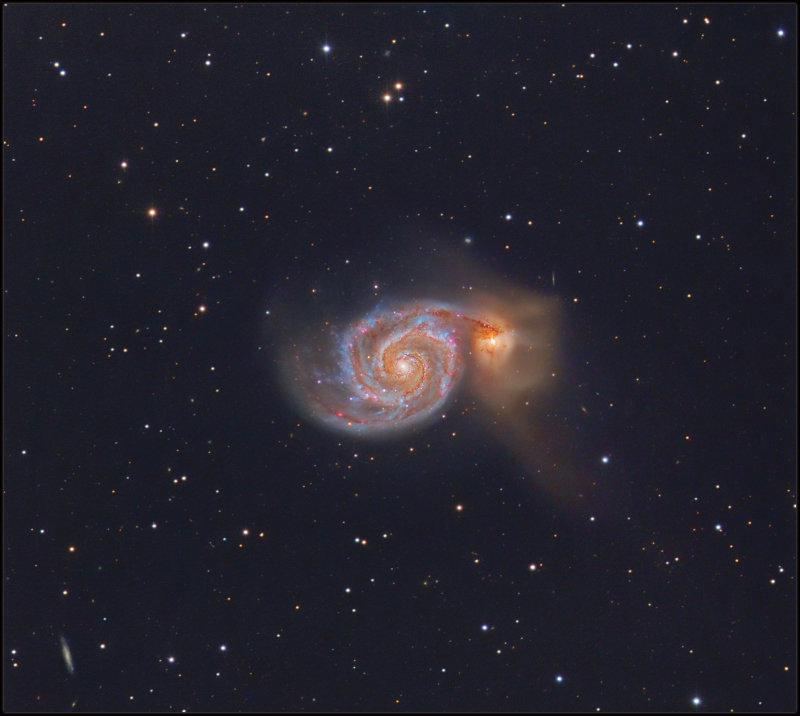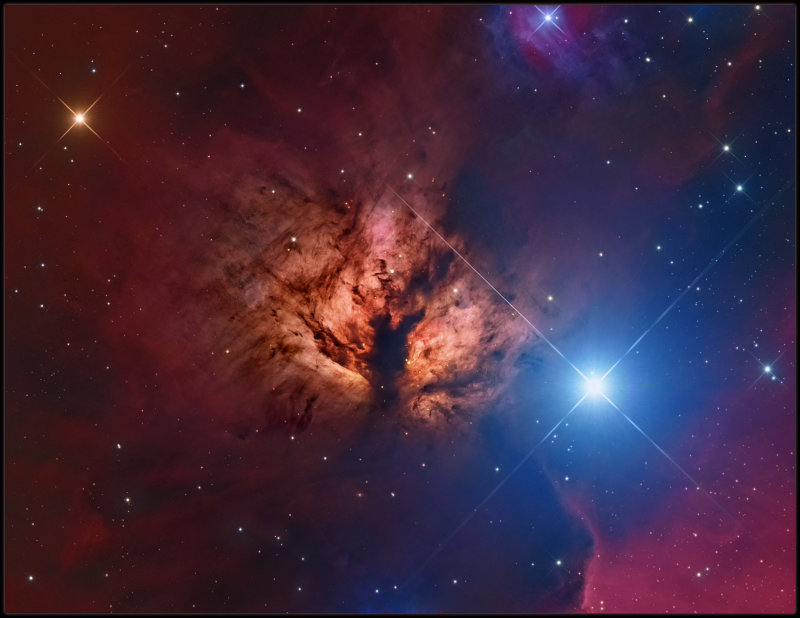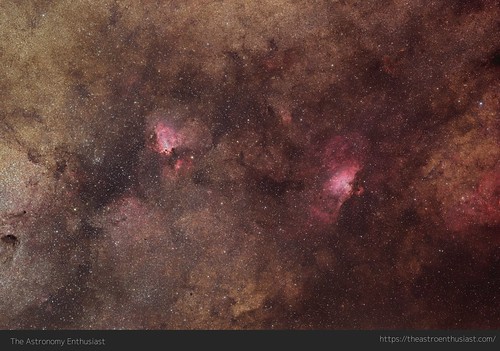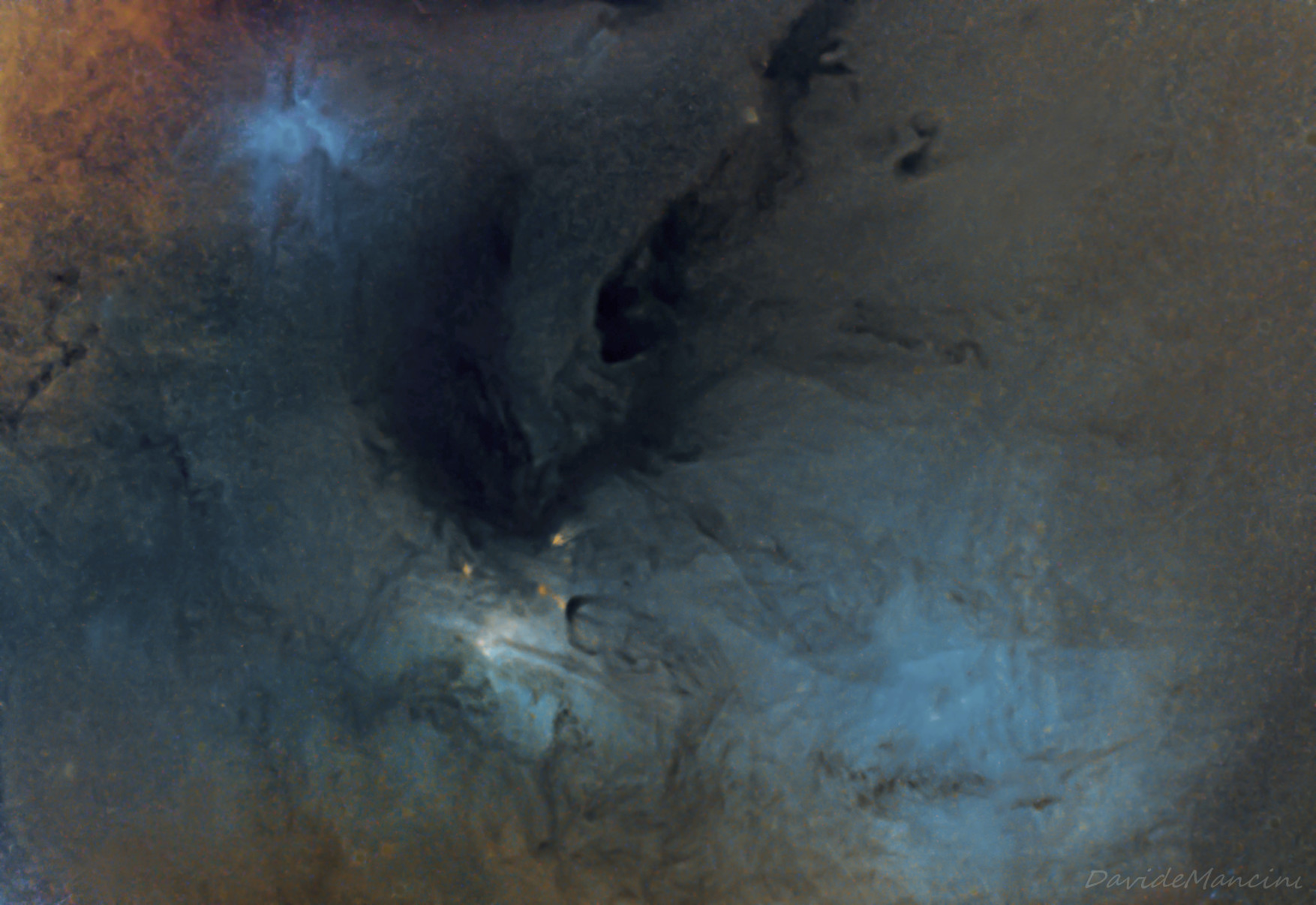Post
by Adrien Mauduit » Tue Apr 27, 2021 9:35 am
73-panel mosaic of the milky way over La Palma island's southern volcanoes
Credits: Adrien Mauduit
Here’s my latest submission to APOD. It’s the result of a one-year project trying to get an ultra-detailed panorama of the milky including its original/native foreground. The challenge here was not only to get as many details and colors as possible in the short window of time I had before the milky way set (so also do it in one and same night), but also to include the foreground from where I shot the mosaic, as it has rarely been attempted before at that resolution (135mm). Here is the image in low res. I can provide a high res file upon request (12k x 18k pixels, 5Gb file).
Story:
My most achieved image of the milky way to date. I had been waiting a whole year to realize and complete this project I had in mind for some time. I was trying to find ways to produce an extremely detailed and colorful picture of the milky way. As I have done many 50mm panorama in the past, I wanted to try something even more challenging and crazy, so I decided to not use an 85mm but go all the way to 135mm, as well as including the original foreground. Since the Samyang 135mm f2 is one of the best lenses for astrophotography (minus the weird halo at the center), I used it with my astromoded 6D and headed to La Palma island (Bortle 1-2) to get this Mosaic. But this wasn't a piece of cake. Out of the 10 days I was there, only a few had no calima, this haze coming from the Sahara desert. On the shooting night, it wasn't a done deal either as I had to battle with the wind, 100’s of blood-thirsty mosquitoes and altitude sickness (2400m) during the alignment and positioning of my multiple one-minute exposures! Then, I had no guiding or pano head (as the camera was on a tracker) so I shot the 73 pictures just using the view finder for star alignment and hoping I got enough overlap! Some frames with bright stars were easier than others, but many didn’t contain many reference stars to align one panel to the next, so I had to use a lot of luck and patience. Also, I had to make sure all panels were in focus in between, and the back and forth with bright LCDs and dark view finder is not easy for the eyes to handle. I strategically started the panorama in the lower right-hand side of the sky to make sure I got the data in time before that part set. It took me 2 hours to complete the 56 light frames, after which I shot the 17 frames for the foreground back-to-back from same tripod location but with the tracker and light pollution filter off. I also shot calibration frames right afterwards to improve image quality.
The post processing took me hours and days to achieve, as some areas didn’t have much overlap, and the first two columns were started at the end of astronomical twilight, so I had to manually adjust the white balance and exposure for about 15 pictures. I also had aberration, gradient and artifacts problems, which I had to solve one by one in pre-process.
Pano of 73 shots, Canon 6D modded + Samyang 135 mm f2 + Star adventurer Pro tracker + Kase LP filter. Foreground is untracked, background is tracked.
Sky: 5 columns of 11 shots in landscape orientation. 56 x single 1-minute exposure frames at ISO 3200, f2.8 + calibration frames, light pollution filter, tracked.
Foreground: 17 x 1 minute at ISO 6400, f2, no LP filter, untracked.
The same gear and tripod position were used, the shots were taken back to back. The sky was blended as it was with the foreground as I started shooting the pano.
Light frames pre-processed in Nebulosity 4 with calibration frames subtracted to single images. Sky and foreground both stitched in PtGui Pro. The sky was edited in PixInsight, blended to the foreground in Adobe Ps and the final touches were made in Adobe Lightroom.
-
Attachments
-

 IC 2177 The Seagull Nebula by XiangHao Ma
IC 2177 The Seagull Nebula by XiangHao Ma